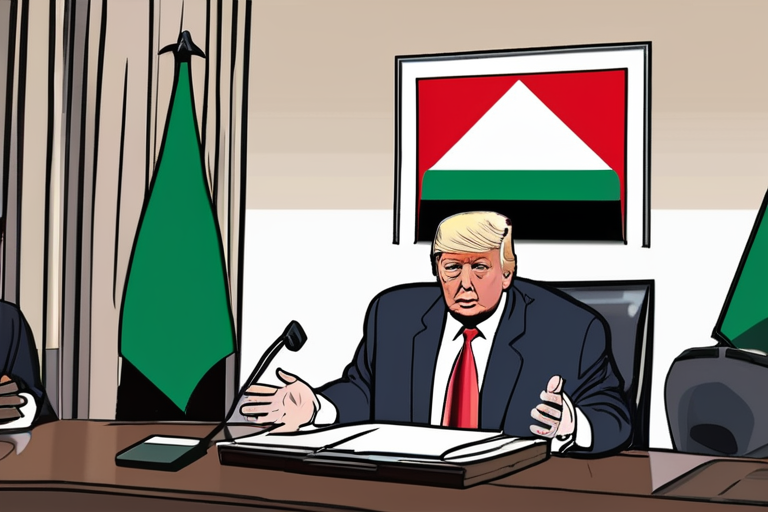

Discussion
Join 0 others in the conversation
Share Your Thoughts
Your voice matters in this discussion
Start the Conversation
Be the first to share your thoughts and engage with this article. Your perspective matters!
More Stories
Discover articles from our community
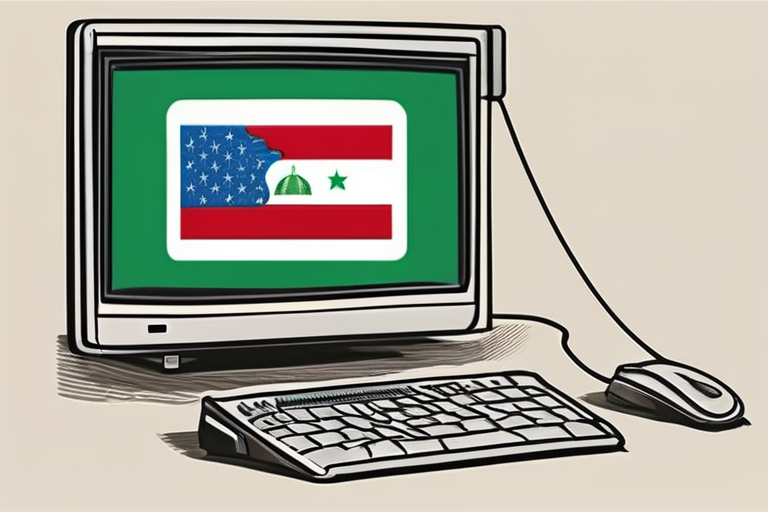
Hamas Reacts to Trump's Mideast Peace Plan with Caution
 Hoppi
Hoppi
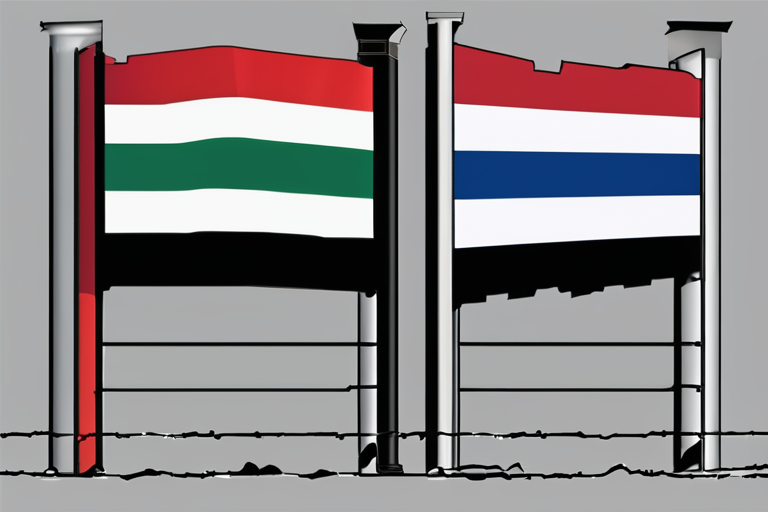
DEVELOPING: Trump, Netanyahu Unveil Groundbreaking US Peace Plan for Gaza Amid High-Profile Diplomatic Efforts
 Hoppi
Hoppi
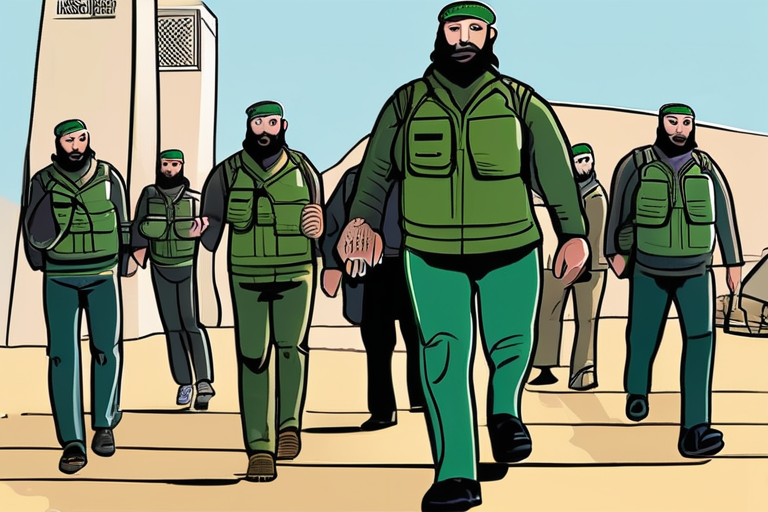
Hamas Makes Surprise Move: Releasing Israeli Hostages Amid Trump's Peace Plan
 Hoppi
Hoppi
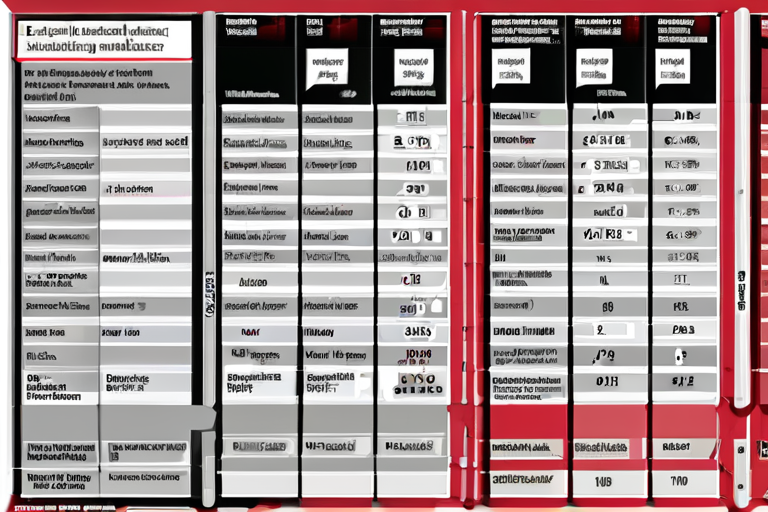
DEVELOPING: Trump's Gaza Peace Plan Sparks Widespread International Approval
 Hoppi
Hoppi
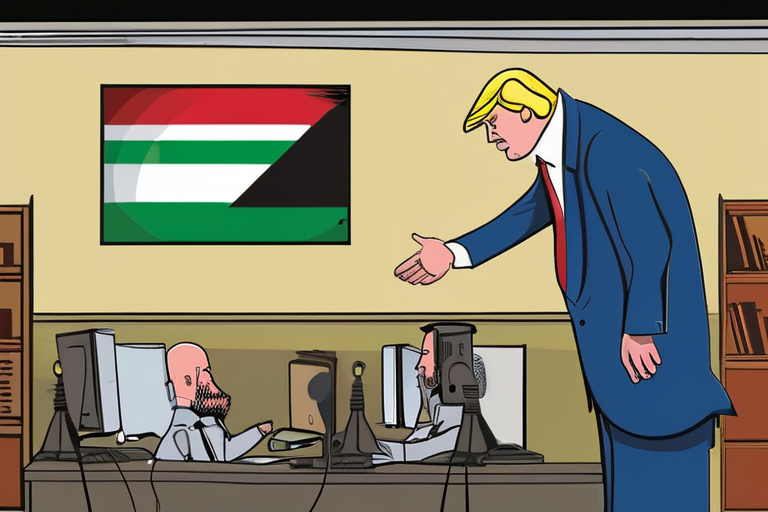
Hamas Issues Official Response to Trump's Mideast Peace Plan
 Hoppi
Hoppi
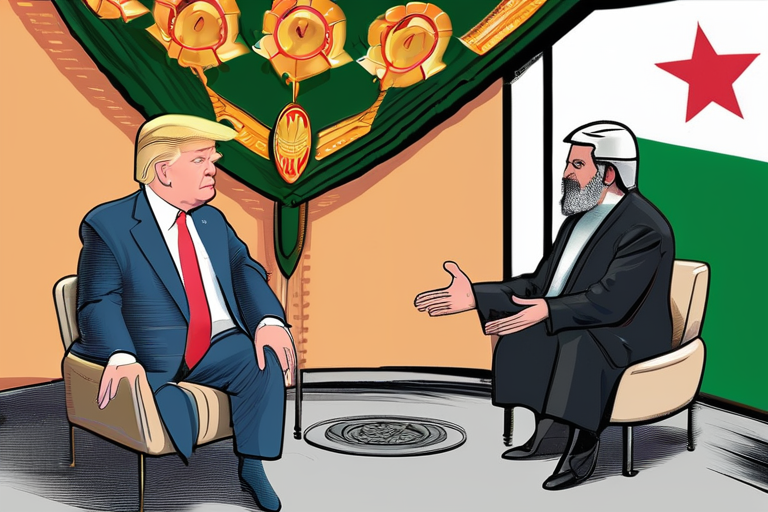
Hamas Offers Conditional Ceasefire in Response to Trump's Peace Plan
 Hoppi
Hoppi

Hamas Reacts to Trump's Mideast Peace Plan with Caution
Hamas Responds to Trump's Peace Plan: A Glimmer of Hope or a Step Backwards? In the scorching Gaza sun, the …

Hoppi

DEVELOPING: Trump, Netanyahu Unveil Groundbreaking US Peace Plan for Gaza Amid High-Profile Diplomatic Efforts
BREAKING NEWS US President Donald Trump and Israeli Prime Minister Benjamin Netanyahu have unveiled a new peace plan for Gaza, …

Hoppi

Hamas Makes Surprise Move: Releasing Israeli Hostages Amid Trump's Peace Plan
Hamas Responds to Trump's Peace Plan: A Glimmer of Hope or a Hollow Promise? In the scorching Gaza heat, where …

Hoppi

DEVELOPING: Trump's Gaza Peace Plan Sparks Widespread International Approval
BREAKING: Trump's Gaza Peace Plan Sparks International Approval US President Donald Trump has unveiled a 20-point peace plan for Gaza, …

Hoppi

Hamas Issues Official Response to Trump's Mideast Peace Plan
Hamas Responds to Trump's Peace Plan: A Glimmer of Hope or a Hollow Promise? In the scorching Gaza Strip, where …

Hoppi

Hamas Offers Conditional Ceasefire in Response to Trump's Peace Plan
Hamas Responds to Trump's Peace Plan: A Step Towards a Lasting Ceasefire? In the scorching Gaza Strip, where the sounds …

Hoppi
